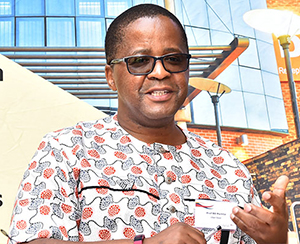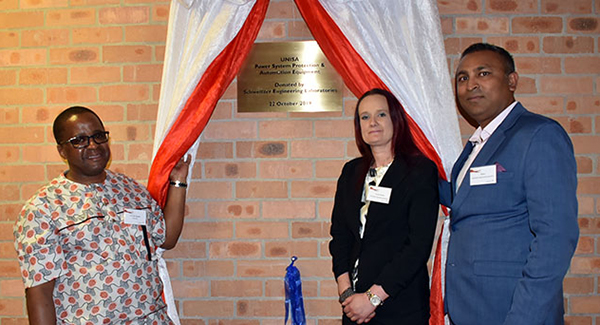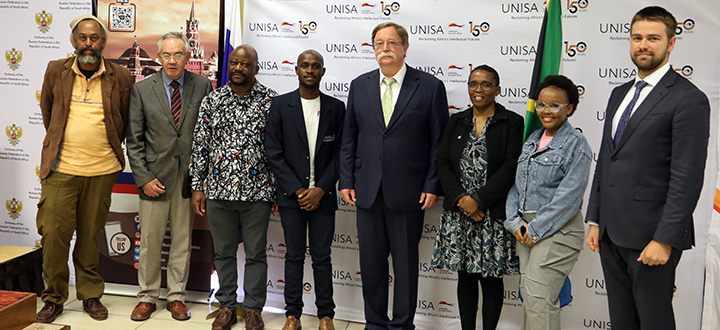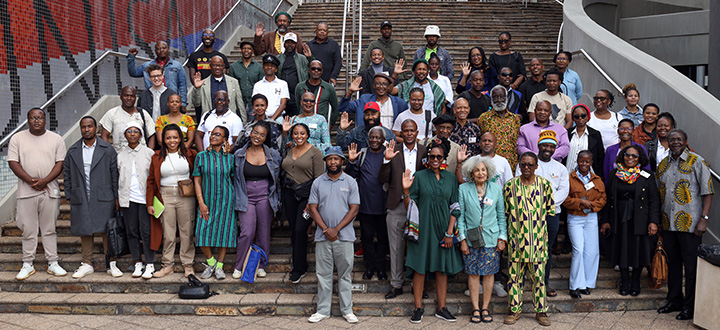College of Science, Engineering & Technology
Real-time digital simulation platform could provide answers to South Africa’s electricity deficit

Prof Bheki Mamba, CSET Executive Dean
Unisa’s College of Science, Engineering and Technology (CSET) in Florida, Johannesburg, recently launched the real-time digital simulation platform for power hardware in the loop, and protection and automation equipment.
The college recently received world-class equipment that differentiates it from four other universities in South Africa, namely the Durban University of Technology (DUT), the University of KwaZulu-Natal (UKZN), the Cape Peninsula University of Technology (CPUT) and the University of the Witwatersrand (Wits). "These universities have various types of systems that can be used for real-time digital simulation, but none of them has the capability to simulate 1800 nodes and power hardware in the loop (PHIL). We have a platform that can sink or source up to 7 kVA, through a four-quadrant amplifier," said Prof Bheki Mamba, Executive Dean of CSET.
The spin-offs and the importance of partnerships
"What is the implication of having a platform that can simulate 1800 nodes?" asked Mamba. "It means the platform we have at Unisa can simulate any of Eskom’s transmission subgrids. Mamba believes that this development presents Unisa with the opportunity to leverage partnerships with power stations in real time. It will include other independent power producers, those who work in network managing and stabilisation, and generators to optimise the network, which have become challenging in order to balance the network with other factors."
Schweitzer Engineering Laboratories (SEL) donated the equipment, which is industrial grade, and is valued at R257 150. SEL has been operating for 35 years and provides complete power-system protection.

Prof Bheki Mamba, CSET Executive Dean, and SEL representatives, Ms Careau-Marie Delport and Mr Nolan Chetty
Provision of various solutions
According to Mamba, Unisa will be able to provide comprehensive solutions to South Africa. The advantage of having PHIL is that a physical generator, motor, wind turbine, photovoltaics (PV) solar panel, fuel cell or energy storage device (battery, flywheel) can be physically integrated into the platform. This will enable students or researchers to study the impact of these devices on a power system in real time.
PHIL has the added benefit of enabling a combination of the best of both simulations and real-life experiments in the real-time digital simulation platform for power systems. The platform provides a relatively safe, flexible and cost-effective environment in which to study the interaction between various power-system components and active controllers without posing a risk to power utilities.
The impact on teaching, research and industry
The platform is set to improve teaching and research in power-system operations, protection, automation, smart grid and renewable energy source integration. The intended users of the equipment will be undergraduate students, postgraduate students and faculty members. It will provide real-time simulation experiments.
Even though Unisa is an open, distance and e-learning (ODeL) institution, the students enrolled for electrical, mining and engineering are required to perform experiments in laboratories at the Science Campus. It is a requirement of engineering education that learners must receive hands-on experience and skills that can be used to solve problems in the real world.
This platform is expected to create a skills base where graduates can encounter real situations at work. "We are creating high-level knowledge and preparing students for the world of work. We will therefore add value to organisations," said Mamba.
"Overall, this platform gives staff in the College opportunities to do new things. As a College, we continue to assist students through work-integrated learning (WIL), short learning programmes (SLPs) and research in laboratories. However, we must be able to dismantle the notion that education institutions in South Africa cannot work together. We have partnerships with Technical and Vocational Education and Training (TVET) colleges for further training capacities."
The scope is wider with this platform, and this infrastructure is invaluable to Unisa. "The investment shows Unisa’s commitment to students, including in engineering education," said Mamba.
* By Busisiwe Mahlangu, Communications Coordinator, Department of Institutional Advancement
Publish date: 2019-11-12 00:00:00.0

 Unisa's student leadership engage with Russian ambassador
Unisa's student leadership engage with Russian ambassador
 Re-igniting and re-imagining Pan Africanism, Afrocentricity and Afrofuturism in the 21st century
Re-igniting and re-imagining Pan Africanism, Afrocentricity and Afrofuturism in the 21st century
 Young Unisa science stars join elite Lindau Nobel Laureate group
Young Unisa science stars join elite Lindau Nobel Laureate group
 Education MEC addresses Unisa autism seminar
Education MEC addresses Unisa autism seminar
 Seven Unisans nominated for the NSTF-South32 Awards 2023/2024
Seven Unisans nominated for the NSTF-South32 Awards 2023/2024